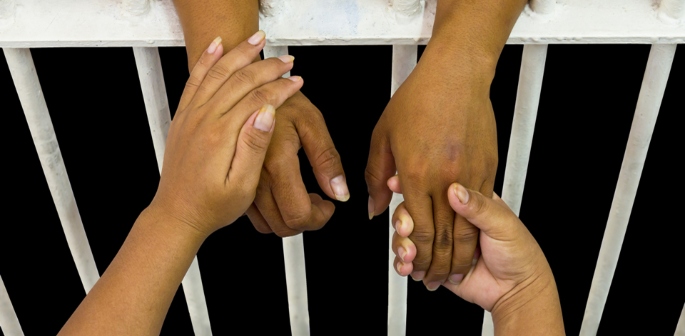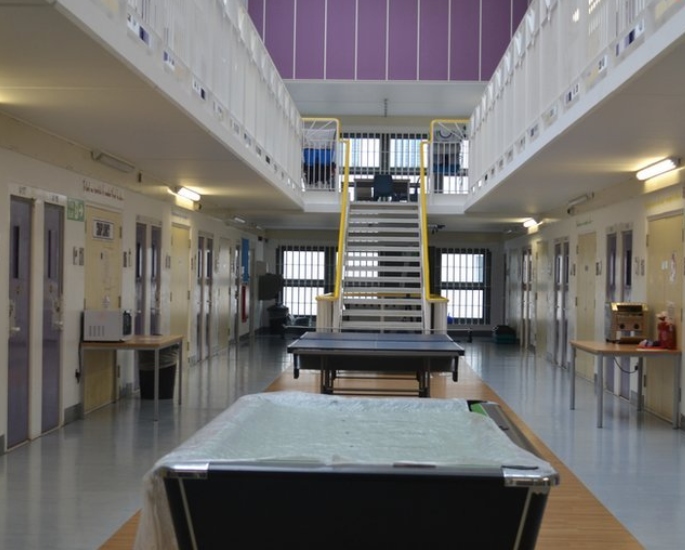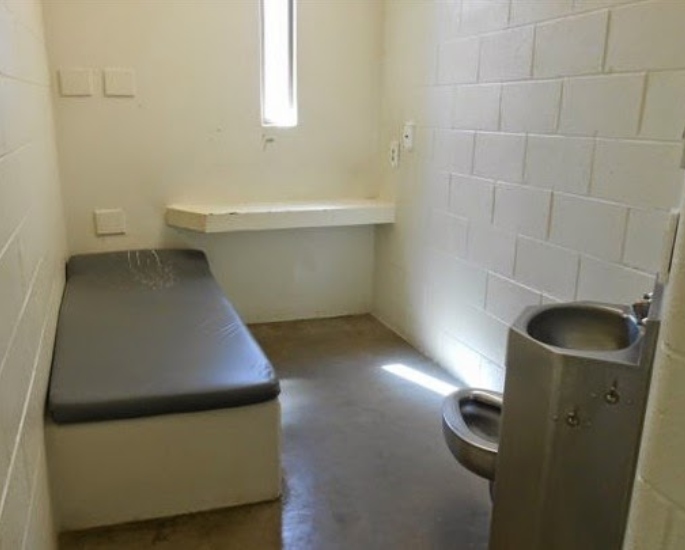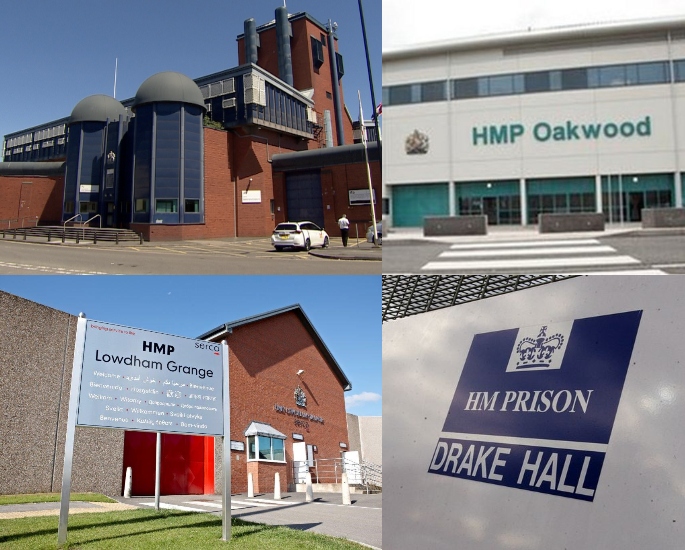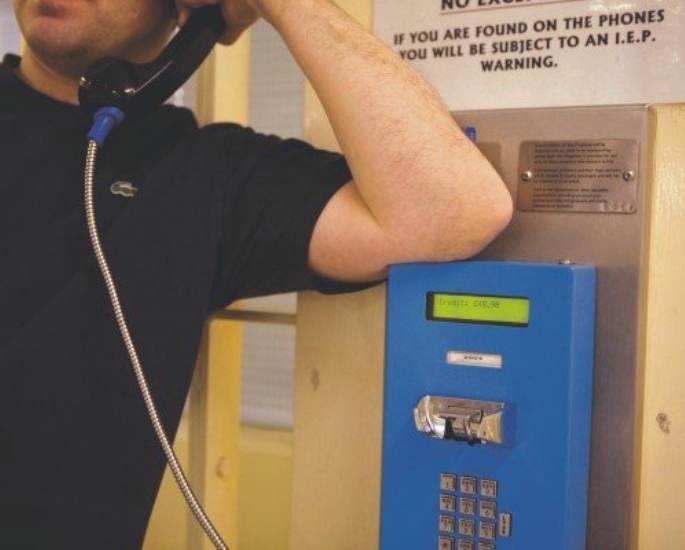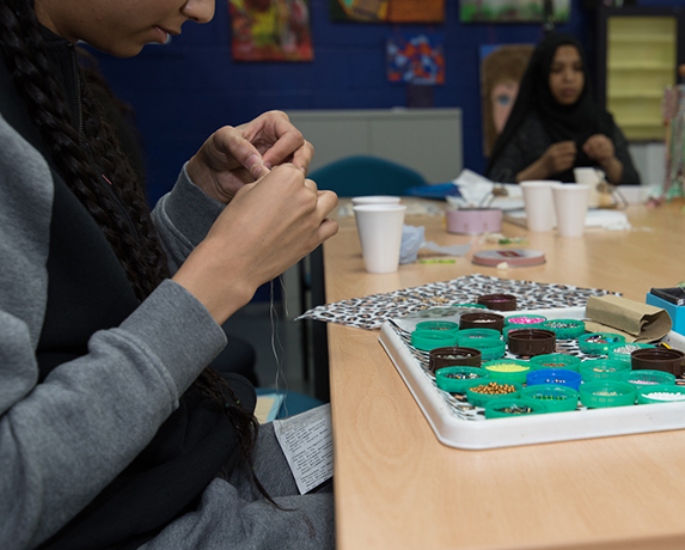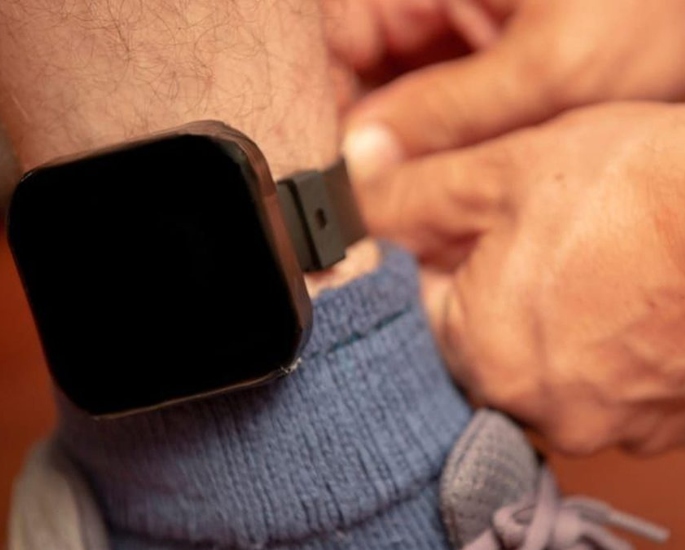"Seeing their dad physically was so important"
When a person is in prison, their family (known as prisoner/offender families) face significant challenges. It is imperative that they’re made aware of facts and resources to aid them.
For example, prisoner families often need help understanding facts about criminal procedures, the law and prison.
They also need practical and emotional support as they try to deal with the ordeal of having a loved one imprisoned.
The problems prisoner families experience can be made worse by their difficulties accessing tools to help them understand proceedings.
Due to the disproportionate number of Black, Asian and Minority Ethnic (BAME) prisoners in Britain (27%), many prisoner families are from BAME backgrounds, like South Asians.
Also, in the West Midlands, UK, South Asian women constitute 7.5% of the female population. Yet, they make up 12.2.% of first-time entrants to the Criminal Justice System (CJS).
Ministry of Justice (MoJ) data shows Asian men are 62% more likely to be committed to the Crown Court for trial than caucasian men.
Moreover, between 2019-2020, South Asian women were over two times more likely to be committed to the Crown Court for trial than white women.
The disproportionate number of British Asians involved in the CJS means Desi prisoner/offender families in the UK are at a disadvantage.
Worldwide research has shown that having someone in prison can have negative emotional, social, financial and health consequences for families.
Razia T Hadait, Founder and Managing Director of Himaya Haven CIC supports prisoner families and maintains:
“The experience of someone being arrested, remanded and imprisoned for families is traumatic. The impact isn’t just on the adults but the children and teenagers.
“Families have many struggles and hardships on the outside.”
Hence prisoner families are referred to as “the silent victims on the outside“. Yet, such families are often overlooked by the CJS.
Here are 20 resources and facts to help Desi and other prisoner families in the UK.
Families of Prisoners can get Support
Prisoner families often do not have easy access to facts to help them understand the judicial system and processes.
Nor are families aware that support for them is easily available. Again, in part, because they are not the focus of the CJS when someone is arrested and imprisoned.
Yet, the fact is practical and emotional support is available for families. There are organisations that can provide a great deal of help and support.
They provide information that includes understanding arrest, remand, imprisonment and release. In addition to emotional and practical support in a family’s lives on the outside.
Often feeling a haze of worry, shame and uncertainty, families do not know where to turn to.
*Rose Begum, a 25-year-old British Bangladeshi undergraduate student states:
“We had no clue there were organisations that would be willing to help us.”
She continues:
“When my brothers were arrested, we were alone.
“We did everything alone and struggled to find information. It made the pain of what was happening that much worse for my mum and me.”
Organisations to help Prisoner Families
There are non-profit organisations across the UK that specialise in supporting prisoner families.
Such organisations can give families facts to help them understand the CJS and what is happening.
Thus helping alleviate anxiety, stress and uncertainty.
Moreover, non-profit organisations supporting families help from the onset of arrest, through remand, imprisonment and release.
For example, Prison Advice and Care Trust (PACT) is a national charity providing support to prisoners, convicted people and their families.
There is also the free National Prisoners Helpline, which provides support to families who have someone who is in contact with the CJS.
Also, Himaya Haven CIC is a Birmingham-based grassroots organisation that provides culturally sensitive support to prisoner/offender families.
A large proportion of Himaya Haven families are from BAME backgrounds. Especially Kashmiri and Pakistani backgrounds which reflect the overwhelming presence of BAME individuals in the CJS.
Organisations like Himaya Haven offer a variety of services, such as:
- Support understanding legal/criminal processes.
- Communicating with prisons and the police on your behalf.
- Helping you to contact and support the person in prison.
- Explaining legal and official documents.
- Providing support during court hearings, trials, meetings etc.
- Assisting you in locating and applying for financial aid.
- Mentoring of children/young people.
- Providing emotional support to you and your family.
Suppose an organisation that you contact cannot directly support you. In that case, they can refer you to an organisation that can help.
Therefore, you must reach out. Either way, you will receive the appropriate aid to help you and your family.
Is English a Struggle?
Another unknown fact to help families is that interpretation services are available for those that struggle with speaking English.
Organisations that specialise in providing support to families of prisoners and offenders usually have a team that speak multiple languages.
For example, at Himaya Haven, some of the languages spoken and used to help prisoner families are Punjabi, Mirpuri, Urdu, and Hindi.
In 2021, the Himaya Haven team verbally translated and explained legal and other documents to a mother who could not fully read English. The mother’s son had been given a Youth Referral Order.
Where an organisation cannot communicate in the language you speak, they can talk to a family member or friend who can understand English.
Or if a friend/family member knows another language, the organisation can try and accommodate that.
Alternatively, they can help you locate an organisation/team that can communicate in your given language.
Understanding the Rights of a Person Arrested
When a person is arrested and taken into custody, families often have no idea what is happening.
In particular, families also do not know what rights their loved ones have which is vital to repair.
A person who is taken into UK police custody has rights to the following;
- Free legal representation.
- To have someone notified of their arrest.
- Food and exercise.
- A warm, clean cell with bedding.
- At least 8 hours of rest every 24 hours.
- Medical help if they are feeling ill.
If a person under the age of 18 is taken into custody/arrested, the police must:
- Try to contact the young person’s parent, guardian or carer (this also occurs for a vulnerable adult).
- Find an ‘appropriate adult’ to come to the station to help the young person and be present during questioning and searching.
A key fact to help those living in Scotland, the law on arrest is different.
When being questioned about a crime a person is suspected of – it will be recorded.
Although a person in custody does not have to answer questions, there will be consequences for not answering. The police will explain this by reading to the person arrested the police caution:
“You do not have to say anything. But, it may harm your defence if you do not mention when questioned something which you later rely on in court.
Anything you do say may be given in evidence.”
A limit on Custody Time
The police can hold a person for up to 24 hours before charging them with a crime or releasing them.
The police can apply to hold a person for up to 36 or 96 hours if the person is suspected of a serious crime, like murder.
Someone can be held without charge for up to 14 days if they are arrested under the Terrorism Act.
Getting Released on Bail
The police can release someone on police bail if there’s not enough evidence to charge the person.
There is no charge for being released on police bail in the UK. However, the person released will have to return to the station for further questioning when asked.
Your loved one can be released on conditional bail if the police charge them and think that they may:
- Commit another offence.
- Fail to turn up at court.
- Intimidate other witnesses.
- Obstruct the course of justice.
Conditional bail means that freedoms will be restricted in some way, such as having a curfew.
Police Power is Regulated & Public Rights Protected
The police have codes of practice they must follow under the Police and Criminal Evidence Act 1984 (PACE). This protects public rights and regulates police power.
The PACE codes of practice cover:
- Stop and Search.
- Arrest.
- Detention.
- Investigation.
- Identification.
- Interviewing Detainees.
These codes are extremely important as they aim to strike the correct balance between police powers and protecting the freedom of the public.
If any of these codes are abused then families and prisoners alike are able to take legal proceedings against the police.
Understanding Remand
Here are some facts to help families understand what remand is.
If the court decides to put your loved one on remand, it means they will go to prison until their hearing at a magistrates’ court.
If the person on remand is under 18, they will be taken to a secure centre for young people, not an adult prison.
A person will likely be put on remand if they:
- Are charged with a serious crime, like armed robbery.
- Were previously convicted of a serious crime.
- The police think the person may not go to their court hearing.
- The police think another crime might be committed while on bail.
- Bail conditions have previously been broken.
When the defendant attends the hearing at a magistrates’ court, they might be put on remand again until their trial begins. This can occur even if they were previously given bail.
Understanding a Prisoners Arrival to Prison
When a loved one is first taken to prison, it can be an uncertain time for families. *Sumera Zaman, a 30-year-old British Pakistani, recalls:
“When my brother was taken to prison, we had no clue what was going on with my brother. What he was experiencing, the steps he had to take, were unknown.
“My brother told us when he called what the processes were. But before the call, we had days filled with anxiety and so much stress.”
Here is some helpful information to assist families to understand what happens when a person first goes to prison.
Standard Procedures all Prisoners go Through
After a person is sentenced, they are taken from court and initially transported to the nearest reception prison for the first few nights.
After this, the prisoner may be relocated to another prison depending on:
- The security category.
- The nature of the crime.
- Length of their sentence.
- Other factors that are taken into consideration e.g. physical and mental wellbeing.
There is a standard procedure for all prisoners arriving at a prison – the strip search.
Prisoners are strip-searched by officers of the same gender to ensure they are not concealing anything.
The reception staff sort the prisoner’s belongings. Those belongings not allowed will be safely stored until their release.
In addition, a list of clothing entitlements will be provided. At this stage, the prisoner will sort out which clothes they want to/are allowed to wear.
On arriving at the prison from the court, the prison may allow an initial call home. Whether your loved one calls you once or does not in the first week, do not panic.
Week one of residence at the prison is induction week for prisoners.
During their induction, a prisoner will be given information on rules and procedures. Prisoners can then ask further questions about policies and procedures as they emerge.
Also, when your loved one arrives in prison, they will have their physical and mental health checked in the first 24 hours.
The physical and mental health check ensures the prisoner can get the medication, information and support they need during their stay.
The Prisoner Number is Key
A simple but essential fact to help families is that the prison number is key.
When communicating with the prison and sending anything to your loved one in prison (items must follow prison guidelines), you must include the person’s prisoner number.
Also, when a prisoner sends you a letter or an email, their prisoner number will always be included.
If the prisoner number is something that you do not have, the organisation you contact can help you by reaching out to the prison.
However, remember consent must be gained; the prisoner number can only be disclosed if the prisoner agrees.
Prisons are Categorised
It is important to note that there is a difference in how prisons are defined depending on gender and age.
In England and Wales, prisoners are categorised based on:
- Risk of escape.
- Harm to the public, if they were to escape.
- Threat to the control and stability of a prison.
Male Prisons have Four Categories:
Category A prisons are high security which house prisoners that pose the most risk to the public, police and national security.
Category B prisons are either local or training prisons. Local prisons house prisoners taken directly from the court in the local area (sentenced or on remand) which can also hold long-term and high-security prisoners.
Category C prisons are “training and resettlement prisons” where many prisoners are normally located. As a result, they can develop skills that will help them settle back into society on release.
Category D prisons are open prisons and have minimal security.
In Category D prisons, eligible prisoners are permitted to spend most of their day away from the prison on licence. They can do this to carry out work, education or for other resettlement purposes.
GOV.UK state:
“Open prisons only house prisoners that have been risk-assessed and deemed suitable for open conditions.”
Women and Young People
According to GOV.UK, women and young adults are categorised and held in either “closed conditions or open conditions” depending on their risk or needs.
Females and young adults labelled as ‘high risk’ are put into a restricted status. Meaning they can only be held in a closed prison.
In “exceptional cases”, women and young adults may be held in a high-security prison (Category A).
Young Offender Institution (YOI) are prisons that house prisoners aged between 18 to 21.
Under 18s who have been remanded or sentenced to periods of detention are housed in ‘Youth Custody’ establishments.
The category a prisoner is in can change. Risk assessments are undertaken by prison staff to identify if a person is still in the correct prison.
Rules & Policies across UK Prisons
Prisoners across UK prisons have to abide by the rules laid down by the Prison Act 1952.
However, each prisoner must also follow any rules or regulations covering the particular prisoner they are in. Rules and policies do differ.
Each prison has its own rules about what prisoners can keep in their cells. For example, they may be able to keep things like newspapers, books or writing and drawing materials.
Furthermore, prisoners may also be allowed to have entertainment equipment in their room such as TV’s or game consoles, depending on what the prison allows.
Also, the emphasis is on the prisoner informing their families and friends of rules about visits and items that are allowed.
Where it is difficult for the prisoner to inform the family of rules/policies, organisations that support families can help by contacting the prison on your behalf.
Contacting Someone in Prison
Maintaining contact with someone in prison can be a worrying issue for families; here are some facts to help.
There are many ways of communicating with a loved one who is imprisoned. This includes face to face visits, letters by post, email, phone calls and Purple visits.
Prisons encourage prisoners to keep in contact with members of their families, but the rules for doing so are different throughout the UK.
Face to Face Visits
Face to face visits occur across prisoners, but there are different rules governing visits in the different parts of the UK.
Moreover, face to face visits can be reduced, have different rules, and be suspended. This will occur if there are restrictions in place due to, for example, Covid-19.
Visits must be booked in advance, and this can be done by phone or online.
It is key you take one or more forms of identification (ID) such as a passport/driving licence with you to all your prison visits.
The situation is slightly different if your loved one is deemed a ‘Category A prisoner’. A Category A prisoner poses a particular danger to the public or threat to national security should they escape.
For Category A prisoners, when it comes to visits, extensive checks will take place which can take a lot of time.
Although it’s important to liaise with the official organisations to see what options are available.
For example, in Scotland, there is no standardised process regarding prison visits. Instead, each prison will operate its own particular policies.
To Visit Someone in an Adult Prison, you must be:
- Aged 18 or over. Under 18s must be accompanied by an eligible adult.
- A partner, parent, sibling, child, foster-parent, grandparent, carer or significant other of the person you are visiting.
- Or “an individual on whom the person in prison relies for emotional support”.
The following rules apply for visiting an adult prison, Young Offender Institute (YOI) or Secure Training Centre (STC):
- An adult can visit a prisoner with up to one other adult.
- If you’re the only adult visiting, you can bring up to two children.
- If you’re visiting with another adult, you can only bring one child.
- Visitors must live together in the same household or from no more than two households.
*Aliyah Rahman, a 26-year-old British Pakistani, anxiously recalls visiting her husband in prison with their two daughters:
“It was scary when I first went to visit with my little girls.”
She continues:
“But those visits mattered; we were able to see each other. Seeing their dad physically was so important.
“It meant our girls were used to their dad’s presence, his touch. He wasn’t a frightening stranger to them when he came home.”
With some British Asian prisoners and families unaware of certain visiting guidelines, relationships can begin to dwindle. Making it imperative for these policies to be noted.
Phone Calls & Voice Messages
Phone calls cannot be made to a prisoner, rather the prisoner must call the outside. A lot of prison cells now have a phone.
Prisoners can only call people named on their list of friends and family. This list is checked by security when they first arrive, so it may take up to a week before they’re able to call.
Also, the prison will call the number(s) provided by the prisoner to confirm the person on the outside is happy to receive the calls.
It’s important to note that it is cheaper for a prisoner to call a landline compared to calling a mobile.
Prison staff can listen to and record most types of calls. However, some calls are not monitored, such as when a prisoner calls a legal adviser.
You can also exchange voice messages with a prisoner using the Prison Voicemail Service. Although, this requires you to sign up for the voicemail service.
The voicemail service does not charge the prisoner to receive or send messages. However, the prisoner will still pay the normal landline rate from prison to access voicemails or do live calls (about 8p a minute).
Purple Visits
Purple visits (secure online video calling) emerged due to the Covid-19 crisis leading to a pause and reduction in face-to-face visits.
The Purple Visits App can be downloaded via the App Store or Google Play store which has enabled more families to secure a ‘visit’ to their loved one due to the ease of accessibility.
An account will need to be registered and your identity confirmed. Once identification is submitted, the verification process is usually completed within 48 hours.
All Purple Visits video calls are booked in advance. This “helps prison staff ensure that their residents can be taken” to where the Purple Visits occur in prison.
Emails
Those on the outside can contact prisoners via email through an online platform called ‘Email a Prisoner‘.
When using this platform, an account needs to be created.
This service operates easily. Families and friends can write their emails to the prisoner directly on the website and press send.
The emails are then printed out by the prison staff and delivered during the next scheduled delivery of emails and letters.
Importantly this is not a free service, credit must be added to your account (a minimum of £5). In addition, four photos can be uploaded per message (30p per image).
There is a fee for sending an email and an additional charge if you wish to pay for a reply. If you do not pay for a reply, the prisoner can use their funds to send a reply letter.
Letters by Post
You can contact a prisoner by writing to them. When writing a letter, you must write the person’s prisoner number on the envelope.
Normally there’s no limit on the number of letters you can send and most letters sent to and from prison are checked by prison staff.
Prisons cannot open letters from solicitors and courts except in special cases e.g. if they suspect a letter is not really from a legal adviser.
A prisoner can complain to the prison if they believe their letters are being read when they should not be or if letters are not reaching the prisoner.
Crucially during events like the Covid-19 crisis, prisons may amend their rules for letters by post. Each prison will have a different stance, so it is important to check online or through your local organisation.
Sending Money to a Prisoner
People can no longer send money by; bank transfer, cheque, postal order or cash by post to any prison. Instead, a debit card must be used online.
Below are some facts to help you understand the process of sending money. Before setting up a debit card, you will need the following information at hand:
- Prisoners date of birth.
- Prisoner number.
Payments from outside the UK can only occur via a debit card (Visa, Mastercard or Maestro).
The prison service does not accept credit cards or prepaid debit cards. Money takes approximately three days to get to a prisoners account.
It should be noted that prisoners can only spend a certain amount of money each week.
The above payment service is for prisons in England and Wales, not Scottish and Northern Irish prisons.
Exceptions when you can’t use any Online Methods
If you don’t have access to a debit card and cannot set up a bank account, you can apply for an exception.
If the exception application is successful, you will be able to send money by post.
GOV.UK stress:
“Your request may not be granted, so don’t send any money to the prison until you have your exemption letter.
“Exemptions are only given if it’s your only option to send money to friends and family by post.
“To keep prisons safe, the governor can withdraw an exemption at any time.”
Therefore families, friends and the prisoner themselves must be aware of their available methods. Without setting up a functioning payment system, the prisoner may suffer.
Apply for Support with Travel Costs
Travelling to and from is costly, adding further financial strain on families. The Assisted Prison Visits Scheme (APVS) can help you with the cost of travelling for visits.
The APVS applies to all prisons in England, Wales and Scotland.
If you visit a family member, partner or someone who is reliant on you, you might be able to get help paying for:
- Travel to the prison.
- Overnight accommodation.
- Meals.
In addition, you can apply to get help paying for visits that you:
- Have made in the last 28 days.
- Want to make in the next 28 days.
You must be getting certain benefits or have a health certificate to get help.
If you take a child with you or someone to help you (e.g. due to a disability), you might also be able to get assistance paying for their visit.
The application form and further details are available here.
If there is anything else you need to know about the scheme, you can e-mail Help With Prison Visits at: [email protected]
Prisoner Rights & Prisoner Privileges
Prisoner Rights
A key fact to help ease a family’s stress is that in the UK, all prisoners have rights, including:
- Protection from bullying and racial harassment.
- Being able to get in contact with a solicitor.
- Healthcare, including support for their mental health and wellbeing.
All prisoners should be able to spend between 30 minutes and an hour outside in the open air each day. However, this right is restricted when there is a significant issue such as illness, bad behaviour etc.
Furthermore, in regards to healthcare, prisoners have the right to full NHS care in prison.
In prison, treatment must be approved by the prison doctor or a member of the prison healthcare team.
The Prison Reform Trust has written several guides and information booklets on the rights of prisoners. These guides should be freely available from the prison for prisoners.
Prisoner Privileges
There is the ‘Incentives and Earned Privileges Scheme’ in UK prisons, which means prisoners who follow the rules can earn privileges.
It is important to note that privileges are different in each prison – staff will explain to the prisoner how the scheme works.
In most cases, if a prisoner engages in prison duties such as work and rehabilitation, they will earn certain privileges. These can include:
- Eligibility to earn higher rates of pay.
- Additional time out of the cell.
- Access to in-cell entertainment.
- Longer and improved visits.
Likewise, if a prisoner is rebellious, anti-social or misbehaving, then their privileges can be limited or revoked completely.
Prisoners can be Punished
When a prisoner breaks prison rules, they will be punished. Some punishments include but are not limited to:
- Kept in their cell for up to 21 days.
- Given up to 42 extra days in prison on top of their original sentence.
- Privileges can be taken away, like removing a TV from a cell.
Prisoner Transfers
Some prisoners are transferred from one prison to another for a variety of reasons, such as:
- The prisoner’s security category has changed.
- So the prisoner can serve the final weeks of their sentence in a prison closer to their home.
- The prisoner’s sentence plan means they have to complete a course not available at their current prison.
- The prisoner is behaving in a disruptive way.
- Category A prisoners are routinely moved for security reasons.
- If the prisoners main visitor has a medical problem making visits impossible (e.g. due to distance).
A Prisoner can Request a Transfer
Prisoners do not have the legal right to be transferred to another prison if they wish to.
Transfers are not automatically granted. Nevertheless, prisoners can request a transfer through the request/complaints system or on a special form provided by the prison.
Usually, transfers will only be considered after a prisoner has served a few months at the prison they wish to leave.
The prisoner should receive a response to their request within seven days if they use the requests/complaints system.
However, the actual physical move can take several months to occur, as the prison will need to wait for the receiving prison to confirm they have space.
Families Can Help with the Process
The initial request for a transfer must come from the prisoner.
Families can write to the Governor/Director outlining why it is difficult for them to maintain contact. However, this has to occur once the prisoner has already made a transfer application.
Also, supporting letters from a GP, social worker, or another professional can help the application.
Organisations that help prisoner/offender families can support and advise you on writing such as Prisoners Advice Service (PSA).
Safer Custody Team
Each prison has a Safer Custody Team (SCT). The SCT have a “responsibility for the implementation and development of safer custody policy”.
The SCT’s role is to provide assurance to the Governor/Director on all safer custody issues affecting the prison.
Some prisons run confidential Safer Custody hotlines where you can leave a message explaining your concerns.
You will need to go online to check the contact information of the specific prisons to see if they have a hotline.
Alternatively, an organisation that supports prisoner/offenders families can contact the SCT on your behalf.
Prison Chaplaincies exist in each Prison
Prison Chaplaincies are a multi-faith team inside the prison that care for the spiritual and emotional wellbeing of prisoners.
Zahid Bhatti Managing Chaplain & Imam at HMP Wormwood Scrubs asserts that they provide:
“Both religious and pastoral care to…residents and staff within the establishment.”
Plus, chaplains can assist with some aspects of prisoner rehabilitation. Especially for South Asian prisoners who come from a religious background.
For prisoner families knowing this support infrastructure exists can ease the anxiety and uncertainty, they feel when thinking about the person imprisoned.
*Saryah Khan, a 44-year-old British Pakistani states:
“Knowing the Imams were there, talking to and supporting my son took a weight off my shoulders that I cannot explain.”
Also, *Hamza Shah, who is a 25-year-old Kashmiri and based in Birmingham, states:
“I was never religious, but the Imams inside were different to the screws (prison guards/officers).”
He emotionally continues:
“The imams listened and got me and my family dynamics.”
Imprisoned for the possession of drugs at 20, for Hamza, the imams provided a safe and comfortable space to talk and reflect.
As not everyone holds a religion, UK prisons are looking to add a humanist pastoral support member to their teams which focus on those who are non-religious.
Prisoners have the Space to Learn and Develop
Families can worry about what will happen during the prisoners stay when it comes to issues of boredom, skills and knowledge.
Normally courses are available to help prisoners develop new skills, like learning to read/write, use computers and basic maths.
Most prison courses result in recognised qualifications by outside employers, for instance, GCSEs and NVQs.
Also, prisoners may be able to undertake a distance learning course via a university like the Open University.
Furthermore, prisoners can have the opportunity to work within prisons in, for instance, the kitchen where they learn to prep, cook and clean.
Plus, in workshops, prisoners usually have the chance to make clothes and furniture (often paid work).
Find the Unknown Location of a Prisoner
You can use the Prisoner Location Service to find people in prison when you do not know where they are. However, this service is only available in England and Wales.
The location of a prisoner is not disclosed without the prisoner’s permission. Therefore, they will be asked once you make a request.
The only instance where prisoner consent is not needed is if you belong to organisations like the police or a law firm.
You will need to include as much of the following information as you can:
- Your name, or the organisation you represent.
- Date of birth.
- Your address (including postcode).
- Name of the person you want to find.
- The reason – for example, you are their solicitor or a family member.
- Any other names they may have used.
- Their date of birth.
If this is something you need help doing, organisations such as Himaya Haven can do the task on your behalf.
Understanding the Release Date
Several factors can impact the release date of a prisoner “serving a standard determinate sentence”, this includes the length of the sentence and the date of the offence.
Moreover, other factors that can affect when a prisoners release include:
- Time spent in prison on remand will be deducted from the overall sentence.
- The Early Removal Scheme (ERS), which only some prisoners are eligible for.
- Time can be added due to a prisoners behaviour and actions.
Consequently, there is no set answer for a prisoners release. Although when first sent to prison, there will be a decided release date, even though this can alter.
Understanding Licence Conditions
Some prisoners released from prison are ‘on licence’. Being ‘on licence’ means that although they are not serving their sentence in prison, they must follow certain conditions.
Licence conditions are compulsory and must be followed as they serve the rest of their sentence in the community.
A person sentenced to more than 12 months in prison but less than four years may get released early on licence.
Standard Licence Conditions
The paper licence received by prisoners serving determinate sentences will include the following seven standard licence conditions:
- Be on good behaviour and do not behave in a way that undermines the purpose of the licence period.
- Do not commit any offence/crime.
- Keep in touch with the supervising officer as detailed by the supervising officer.
- Receive visits from the supervising officer per instructions given by the supervising officer.
- Live permanently at an address approved by the supervising officer.
- Prior permission must be obtained from the supervising officer for any stay at a different address.
- One must notify the supervising officer in advance of any proposal to undertake work.
- Do not undertake work unless the supervising officer approves it.
- Do not travel outside the UK, the Channel Islands or the Isle of Man. Except with prior permission of supervising officer or for immigration deportation or removal.
Additional conditions can be added to the licence such as a restriction of residency or the introduction of a curfew.
Prisoner Families Matter
In the words of Lord Farmer:
“The importance of good family and other relationships, which are rehabilitation assets, needs to be a golden thread running through the criminal justice system.”
Family bonds and their maintenance are important in helping reduce reoffending, intergenerational crime and facilitating the offender’s integration upon release.
Accordingly, there are specialist non-profit organisations that work to help prisoner families with emotional and practical issues. Such organisations also ensure families have all the facts to help them.
Prisoner families such as those from Desi backgrounds can feel a great deal of shame, isolation and stigma when a loved one is in prison.
Prisoner families can also feel a great deal of guilt and anxiety.
Therefore, it is important that helpful information is easily accessible. In addition, informing families of the support they can gain from non-profit organisations, police and initial contact with the CJS is vital.
For more information, these sites are tremendously helpful:



















































